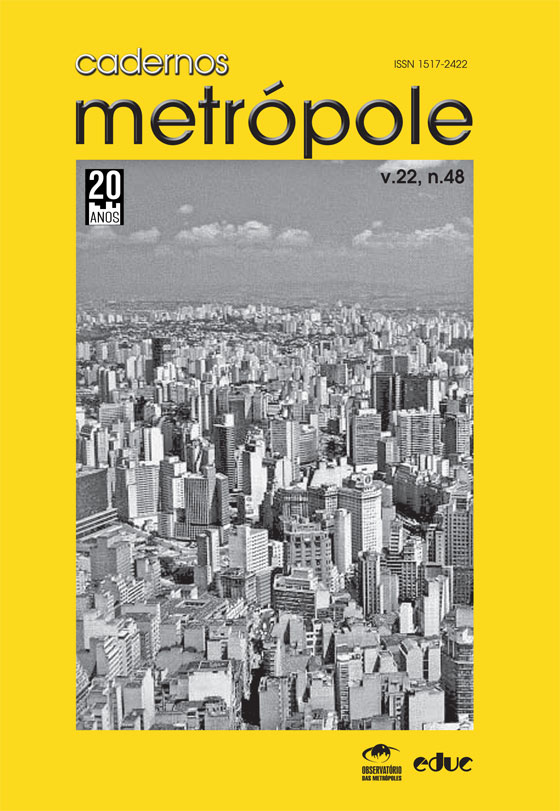Sanitation policies and programs in the Metropolis of Rio de Janeiro: an analysis in the perspective of environmental inequalities
DOI:
https://doi.org/10.1590/2236-9996.2020-4805Keywords:
sanitation, public policies, urban planning, Rio de Janeiro Metropolitan RegionAbstract
Precarious access to sanitation is a major environmental problem in the Rio de Janeiro Metropolitan Region. It negatively affects the population’s living conditions and the rivers in this area, being one of the main causes of pollution in the Guanabara Bay. This paper discusses access to sanitation in the region and addresses the historical causes of the deficit and of the environmental inequalities that mark the west side of the Rio de Janeiro Metropolitan Region, focusing on the area known as Baixada Fluminense and on the municipalities located in the Guanabara Bay Watershed. Finally, it seeks to encourage dialogue based on the technical solutions currently presented, especially the treatment given to the theme in the metropolitan plan (PEDUI), approved in 2018.Downloads
Published
2020-04-30
How to Cite
Nogueira de Paiva Britto, A. L., & Quintslr, S. (2020). Sanitation policies and programs in the Metropolis of Rio de Janeiro: an analysis in the perspective of environmental inequalities. Cadernos Metrópole, 22(48), 435–456. https://doi.org/10.1590/2236-9996.2020-4805
Issue
Section
Artigos
License
A revista não tem condições de pagar direitos autorais nem de distribuir separatas.
O Instrumento Particular de Autorização e Cessão de Direitos Autorais, datado e assinado pelo(s) autor(es), deve ser transferido no passo 4 da submissão (Transferência de Documentos Suplementares). Em caso de dúvida consulte o Manual de Submissão pelo Autor.
O conteúdo do texto é de responsabilidade do(s) autor(es).


